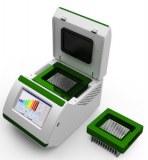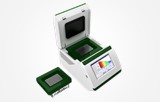
PCR Equipment
Polymerase Chain Reaction (PCR) is a fundamental technique in molecular biology that allows for the amplification of specific DNA sequences. The equipment used in PCR plays a crucial role in ensuring the accuracy and efficiency of the amplification process.
Key Components of PCR Equipment
- Thermocyclers:
- The primary piece of equipment for PCR is the thermocycler. This device automates the temperature cycling necessary for the PCR process, which involves three main steps:
- Denaturation: Heating the reaction mixture to separate the DNA strands.
- Annealing: Cooling the mixture to allow primers to bind to the target DNA sequences.
- Extension: Raising the temperature again so that DNA polymerase can synthesize new DNA strands.
- Modern thermocyclers often come with programmable features, allowing users to customize and save their protocols. Some advanced models also include gradient capabilities to optimize annealing temperatures.
- The primary piece of equipment for PCR is the thermocycler. This device automates the temperature cycling necessary for the PCR process, which involves three main steps:
- Mini Thermocyclers:
- These are compact versions of standard thermocyclers, designed for portability and ease of use in various settings, including educational environments or fieldwork.
Applications of PCR Equipment
PCR technology has a wide range of applications across different fields:
- Genetic Research: Amplifying specific DNA sequences for cloning, sequencing, or analysis.
- Clinical Diagnostics: Detecting pathogens in patient samples for disease diagnosis.
- Forensic Science: Analyzing genetic material from crime scenes for identification purposes.
- Agricultural Biotechnology: Developing genetically modified organisms (GMOs) and improving crop traits.



